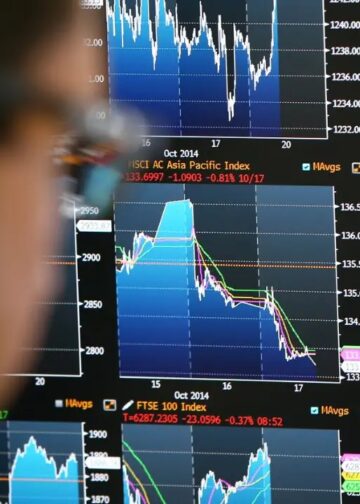Indices trading and stock trading are two distinct types of financial investments, each with advantages and disadvantages. This article will explore which one may be right for you by taking a closer look at how they work, their differences, and when it might make sense to use one over the other. It’ll also provide some tips on what to consider when deciding whether or not to invest in either type of market instrument.
What is indices trading?
Indices trading involves buying and selling index funds. An index fund is a type of mutual fund that seeks to track the performance of a particular stock market index such as the S&P 500 or Nasdaq Composite Index. Index funds comprise a basket of stocks or bonds used to measure a broad market’s performance. By buying and selling index funds, investors can gain exposure to different sectors within the stock market without purchasing individual stocks.
Furthermore, indices trading is passive investing as it does not require investors to actively manage their investments. As such, index funds are generally cheaper and less time-consuming than buying and selling individual stocks.
What is stock trading?
Stock trading involves buying and selling individual stocks or company shares on the open market. Unlike index funds, stock trading is an active form of investing, requiring investors to actively search for and analyse individual stocks. As a result, stock trading can be more time-consuming and expensive than indices trading, as investors must pay broker fees to buy or sell the stocks they are interested in.
Furthermore, stock trading is generally seen as a more risky form of investing than indices trading due to its higher level of volatility. Stock prices can be unpredictable and fluctuate rapidly, making it difficult for investors to accurately gauge their investments’ performance.
When should you use index trading vs stock trading?
The decision to use indices trading or stock trading will depend on several factors, including the amount of capital you have available to invest, how much time and effort you want to put into researching individual stocks, and your overall investment goals.
Why trade indices? Generally speaking, if you’re a beginner investor with limited funds and don’t have the time or energy to actively manage your investments, index trading may be a better option as it offers a lower level of risk and is relatively simple to understand.
Conversely, stock trading may be a better choice if you have more capital available and are willing to put in the extra effort needed to research individual stocks. As long as you can accurately assess the risk associated with individual stocks and understand how the markets work, stock trading can offer significant returns.
Strategies for successful stock and index trades
Regardless of whether you opt for stock trading or indices trading, it’s crucial to understand the markets well and develop a well-thought-out strategy before investing. This includes researching stocks and indices thoroughly, setting realistic goals, diversifying your portfolio, monitoring market performance regularly, and managing risk appropriately. Additionally, it’s often beneficial to consult with experienced financial professionals when making investment decisions to ensure that you are making sound judgments.
Another key strategy to successful investing is finding the right broker. As stock and index prices can change rapidly, it’s essential to find a broker that offers real-time pricing information, fast execution times, and low fees.
Understanding leverage, margin requirements and stop-loss orders
When investing in either indices trading or stock trading, it is crucial to understand the various leverage, margin requirements and stop-loss orders associated with each type of market instrument.
Leverage involves borrowing money from a broker to buy more stocks or index funds than you would typically be able to purchase with your available capital. This can offer higher returns but carries greater risk as losses could exceed the amount initially invested.
Margin requirements are the minimum amount needed to open a position in the market. At the same time, stop-loss orders involve setting predetermined levels where trades will be automatically closed to limit potential losses.
Understanding the different types of orders that can be placed in either market is also essential. These order types include limit orders (which allow you to set predetermined entry and exit points for trades) and stop orders (which can automatically close a trade if it reaches a certain price level).
On the whole
Indices trading and stock trading are popular forms of financial investments with advantages and disadvantages. When deciding which type of investing to pursue, investors need to consider their financial situation, the amount of time they are willing to dedicate to researching and monitoring their investments, and their overall investment goals.
Furthermore, it is vital to understand how leverage, margin requirements and stop-loss orders can affect your trades to minimise potential losses. Investors can benefit from indices trading and stock trading with a clear understanding of these concepts and careful planning.



















